 Index > News >
Shanghai Jiao Tong University undertaking the Second Sino-German Forum on Digital Manufacturing Industries
Index > News >
Shanghai Jiao Tong University undertaking the Second Sino-German Forum on Digital Manufacturing Industries
Shanghai Jiao Tong University undertaking the Second Sino-German Forum on Digital Manufacturing Industries
On November 8th, 2017, the 2nd Sino-German Forum on Digital
Manufacturing Industries, jointly organized by the Chinese Academy of
Engineering (CAE) and National Academy of Science and Engineering (acatech)
and co-organized by Shanghai Jiao Tong University, was held at the Shanghai
International Convention Center. This forum is an important part of "International
Forum on Innovation and Emerging Industries Development" held in Shanghai
from November 7th to 9th. Nearly 300 experts, scholars and researchers from
government, domestic and foreign universities, research institutes and famous
enterprises, including the presidents and academicians of Chinese Academy of
Engineering (CAE) and National Academy of Science and Engineering (acatech)
attended the forum. The experts and scholars discussed the hot issues,
cutting-edge technologies, and development of digital transformation of global
manufacturing industry.
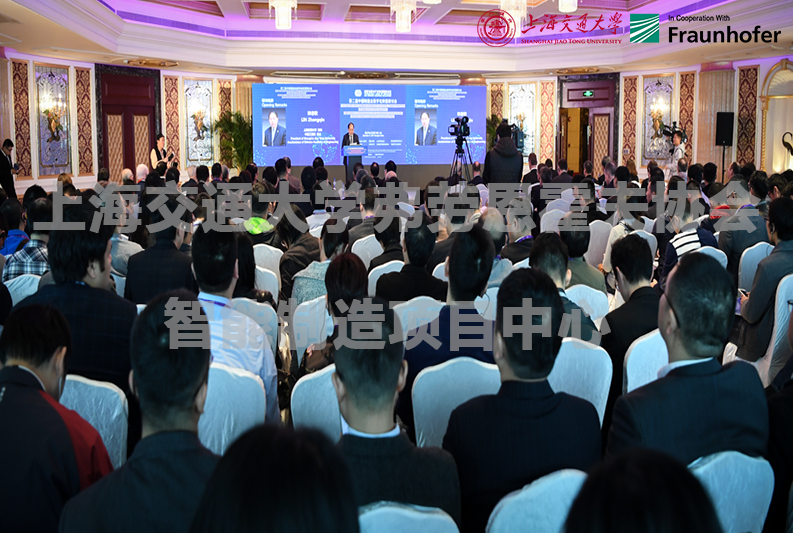
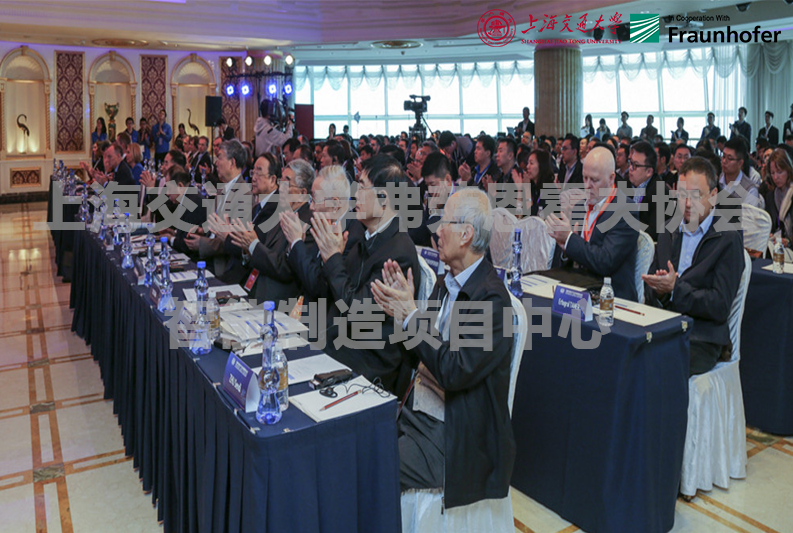
Prof. Zhou Ji, President of Chinese
Academy of Engineering, Prof. Henning KAGERMANN, President of National Academy
of Science and Engineering (acatech) and Chief Designer of "Industry
4.0", and Prof. Lin Zhongqin, President of Shanghai Jiao Tong University
attended the conference and delivered speeches. Prof. Liu Baicheng, Prof. Li
Peigen and Prof. Guo Dongming, Academicians of the Chinese Academy of
Engineering, Prof. Michael DOWLING, Chairman of the Board of Münchner Kreis, Academician
of acatech, Dr. Norbert GAUS, Vice President, Head of Research in
Digitalization and Automation at Siemens, Dr. Tanja RUCKERT, President,
Business Unit IoT & Digital Supply Chain of SAP, Prof. Günther SCHUH,
Professor of RWTH Aachen University, Prof. Albert SHIH, Professor of University
of Michigan, and Mr. Joo Young-Shik, former Director of Korea SMEs and Startups
Agency, gave the keynote report. Prof. Zhu Gaofeng and Prof. Xu
Zhilei, Academicians of the Chinese Academy of Engineering, Mr. Zhang Gang, Councilor
of the State Council of the PRC, Mr. Zhu Sendi and Mr. Xu Jiabin, members of
the National Manufacturing Power Strategy Advisory Committee and other
government and business representatives were also invited to attend the forum.
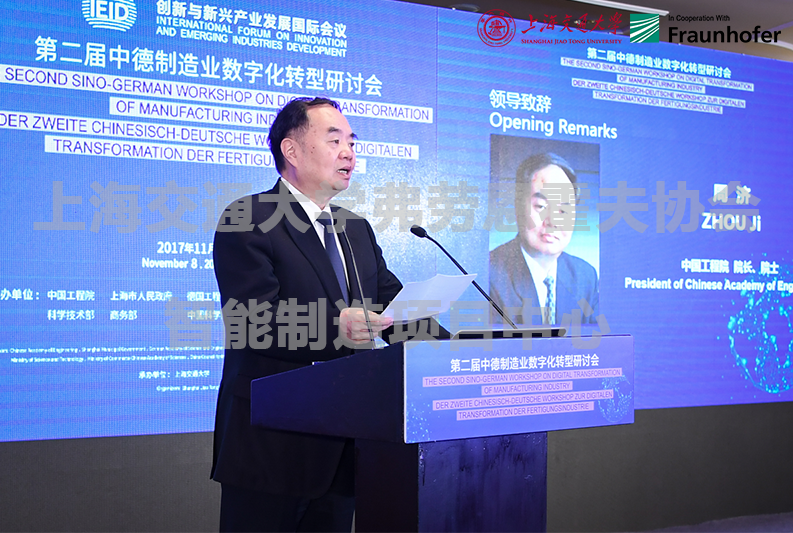
On behalf of CAE, Prof. Zhou Ji delivered a speech and expressed his warm welcome to the experts and scholars from various countries. He pointed out that German "Industry 4.0" plan has driven a new round of technological revolution in global industry, in which acatech has played a guiding role; "Made in China 2025" is the world's largest manufacturing technology upgrading plan. Academicians from the Chinese Academy of Engineering have also played a central role in the validation of the plan. He hoped that China and Germany would respond to the call made by Premier Li Keqiang and Chancellor Merkel to strengthen innovation cooperation in the manufacturing industry, promote the deep integration of "Made in China 2025" and German "Industry 4.0", and jointly drive the technological progress and industrial upgrading of the global manufacturing industry.
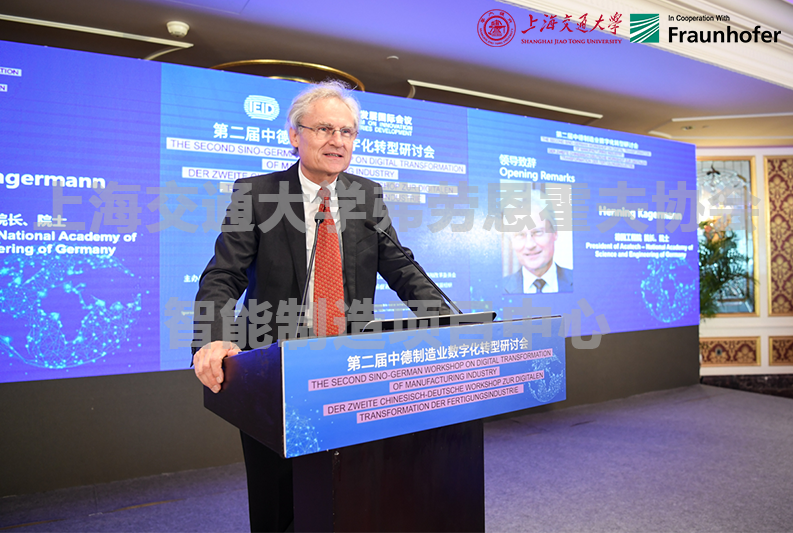
Prof. Henning KAGERMANN delivered a speech on behalf of acatech,
reviewing the cooperation between CAE and acatech and focusing on the profound
impact of digital transformation on various aspects of production life and
enterprise development, etc. Prof. KAGERMANN believed that
"Made in China 2025" and "Industry 4.0" have a wide scope
for cooperation in the field of smart manufacturing and hoped that the two
sides will further strengthen international cooperation and jointly promote the
in-depth cooperation in the field of digitalization to help the global
manufacturing industry transform and upgrade.
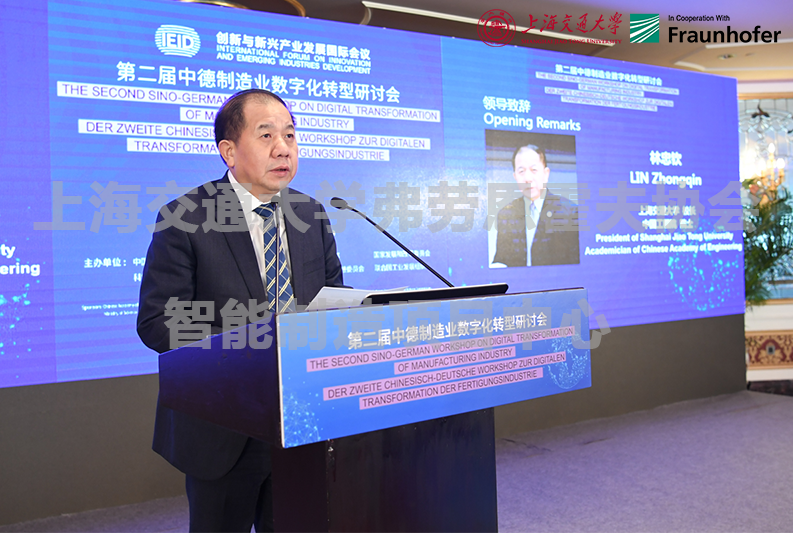
Prof. Lin Zhongqin delivered a speech on behalf of Shanghai Jiao Tong University. He said that the manufacturing industry is the foundation of the country, the tool of the country and the base of the country. At present, the new round of scientific and technological revolution and industrial revolution are forming a historic intersection with China's accelerated transformation of economic development mode, and the global manufacturing industry is ushering in a new era of digitalization, networking, and intelligence. He said that in the field of smart manufacturing, SJTU has unique disciplinary advantages among national universities, and the relevant research layout is also in the forefront of national universities. In 2015, Shanghai Jiao Tong University and Shanghai Lin-gang Special Area Management Committee established Shanghai Institute of Smart Manufacturing, and in 2017, signed a memorandum of cooperation with Fraunhofer Society, which is the core research institute of the German "Industry 4.0" technology system. He hoped that China and Germany will further expand and deepen their cooperation in the field of smart manufacturing and provide new ideas and insights for the transformation of China's manufacturing industry.
The forum brought together famous scholars and
entrepreneurs from Germany, the United States, Korea, and China in the field of
manufacturing. They brought nine excellent presentations on three themes:
"Digital Transformation Strategies for Manufacturing in the Global
Era", "Digital Transformation and Industrial Internet of Thing"
and "Digital Transformation Strategies for Small and Medium
Enterprises".
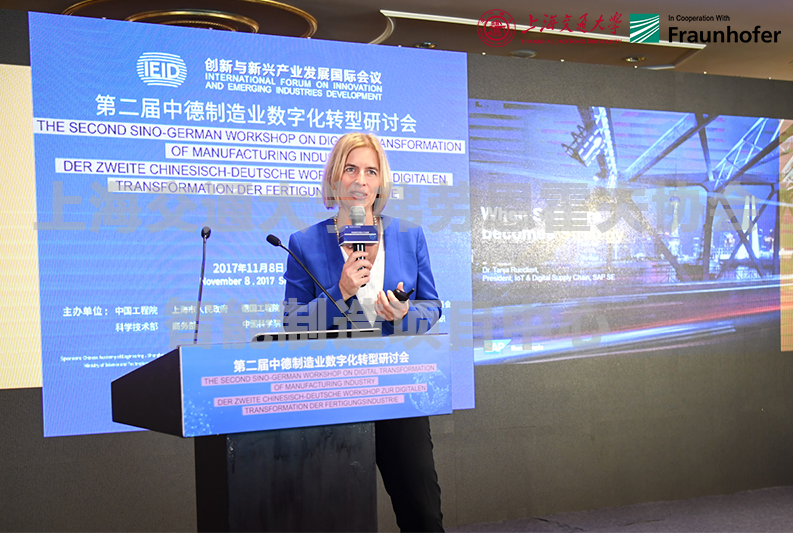
The first session focused on "Digital Transformation Strategies for Manufacturing in the Global Era" and was hosted by Prof. Li Peigen from Huazhong University of Science and Technology. Dr. Tanja RUCKERT from SAP gave a presentation named as "When Software Becomes Strategy", focusing on the dramatic changes in the role of software in the era of "Industry 4.0".
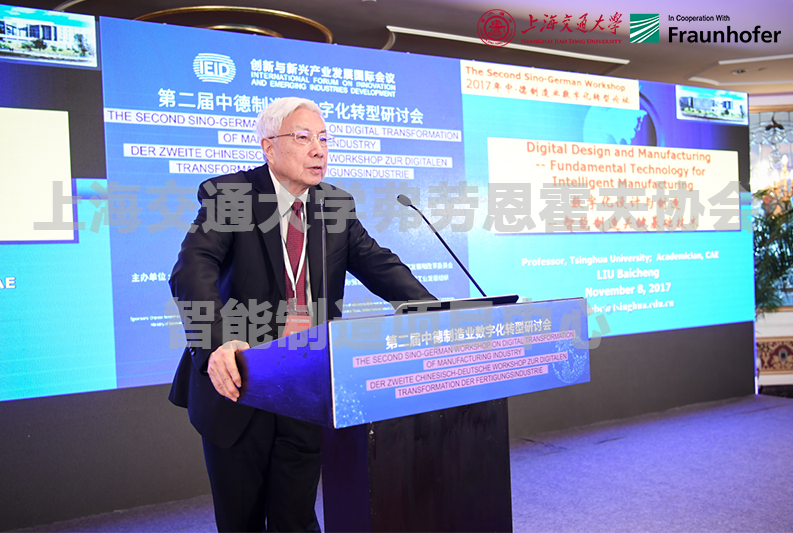
Chinese manufacturing industry is huge but not strong and
faces new challenges in the digital era. "What is the breakthrough and the
main direction of Chinese manufacturing industry, and what are the key
technologies?" Prof. Liu Baicheng from Tsinghua University combined the
background and important contents of the document "Made in China 2025" and pointed out that "Made in China
2025" focuses on five major projects: innovation system, strong foundation
project, smart manufacturing, green manufacturing and advanced equipment, and smart
manufacturing is the breakthrough and the main direction. Prof. Liu emphasized
that digital design and manufacturing is the key basic technology of smart
manufacturing, and modeling and simulation is the scientific foundation. In
addition, he further introduced the latest progress of digital design and
manufacturing and modeling and simulation in domestic and international.
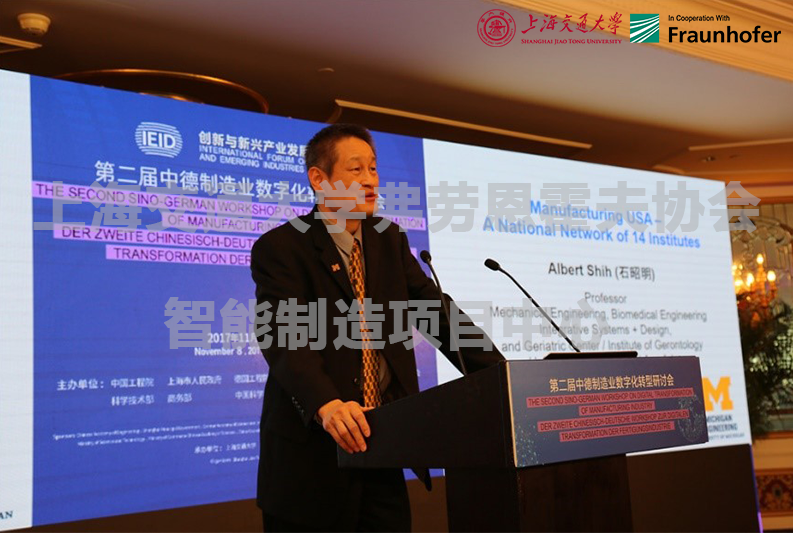
Prof. Albert SHIH, professor of
University of Michigan, explored how the existing research and productivity of
American manufacturing can be leveraged for the development of American
creativity in a presentation titled "The National Network of American
Manufacturing".
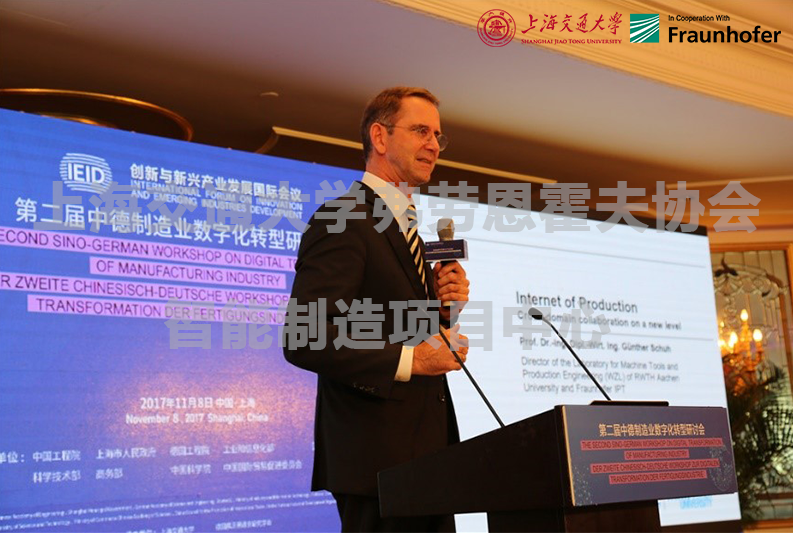
The second session was focused on "Digital
Transformation and the Industrial Internet of Thing" and was chaired by
Prof. Michael DOWLING. Prof. Günther SCHUH, Professor of RWTH Aachen
University, gave a presentation entitled "The Internet of Production - A
New Cross-Disciplinary Collaboration", arguing that the Internet will provide
a brand-new cross-domain cooperation for production and manufacturing, which
will facilitate more timely and accurate access to data and allow enterprises
to create greater value.
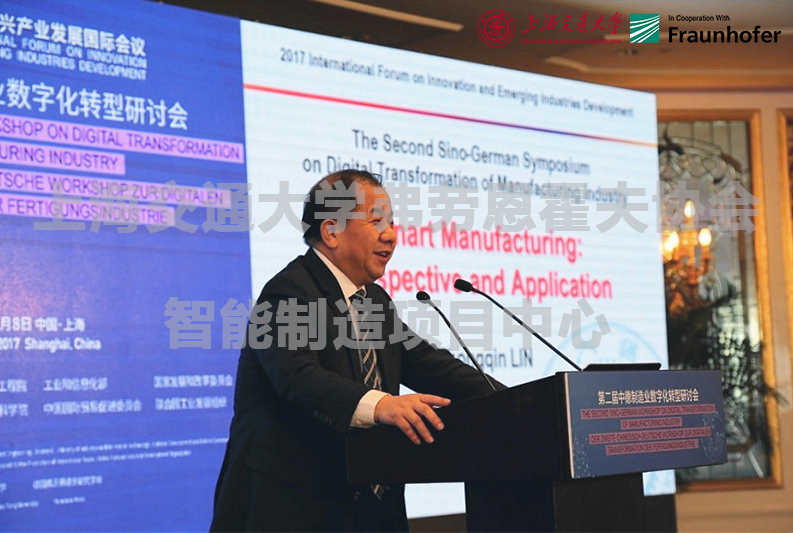
How to improve the manufacturing industry under the
pressure of cost and environment is an important issue facing all countries
today. With the topic of "Smart Manufacturing: Connotation and
Application", Prof. Lin Zhongqin from Shanghai Jiao Tong University
analyzed the current situation of global manufacturing industry from the
perspective of digital transformation; put forward a new understanding of the
connotation of smart manufacturing by focusing on the development of digital
technology and key core technologies of smart manufacturing; discussed the
practical application of digital technology and smart manufacturing technology
with the example of auto body digital sealing; introduced the R&D,
industrial development and international cooperation of Shanghai Jiao Tong
University in Lin-gang Special Area Smart Manufacturing Base.
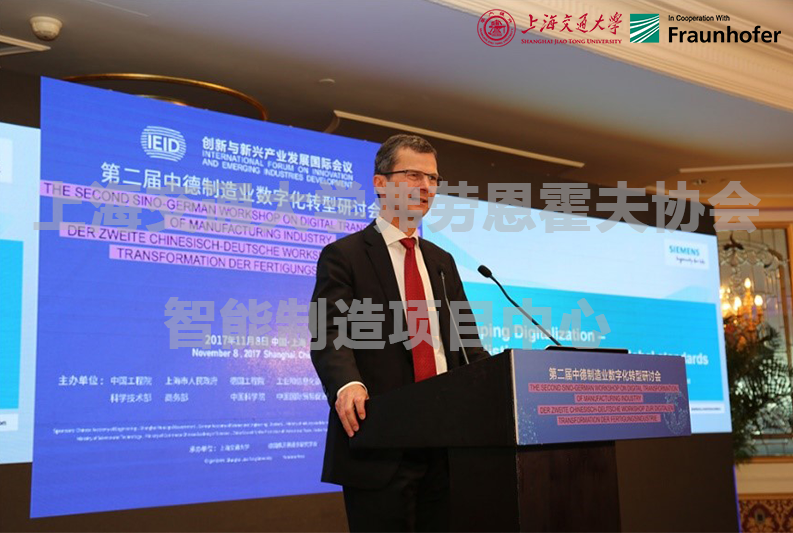
Dr. Norbert GAUS, vice president, Head of Research in
Digitalization and Automation at Siemens, gave a presentation on "Shaping Digitalization
- a Comprehensive Strategy needs to be Supported by Global Standards". He emphasized the importance of industrial drive platforms,
multiple business models and global standards. He said that Siemens is driving
digitalization in many ways to meet customer needs in terms of efficiency,
quality and more.
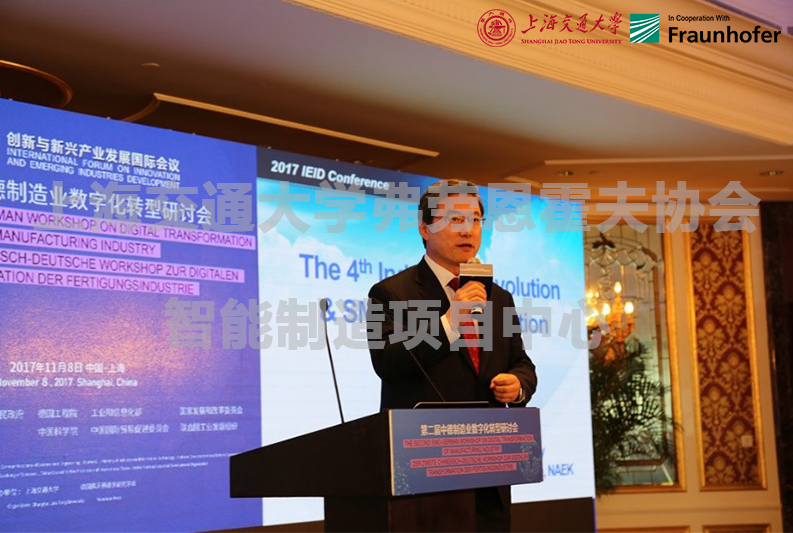
The fourth industrial revolution will bring great changes
to social life and industry through technological innovation and business model
innovation. The third session focused on "Digital Transformation
Strategies for SMEs" and was chaired by Prof. Albert SHIH. In his presentation
on "The Fourth Industrial Revolution and Policy Innovation for SMEs,"
Mr. Joo Young-Shik pointed out that in the fourth industrial revolution,
business models are no longer "big fish eat little fish", but
"fast fish eat slow fish". To enable SMEs to take the center stage in
the development of industrial economy, the government needs to further innovate
its support policies.
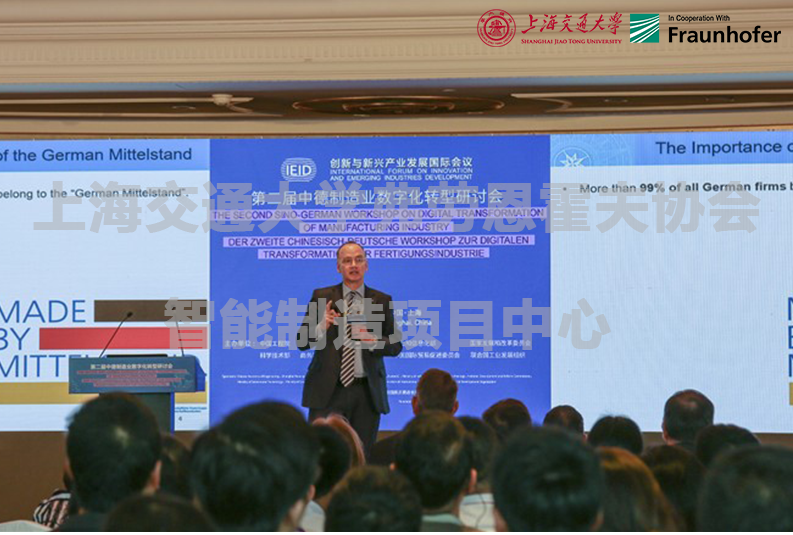
An important pillar of the German economy is the small and
medium-sized enterprises, many of which are leaders in their fields. Prof.
Michael DOWLING gave a presentation entitled "Business Models of German
SMEs for Industry 4.0", which introduced some of the leading German
manufacturing companies with digital business models.
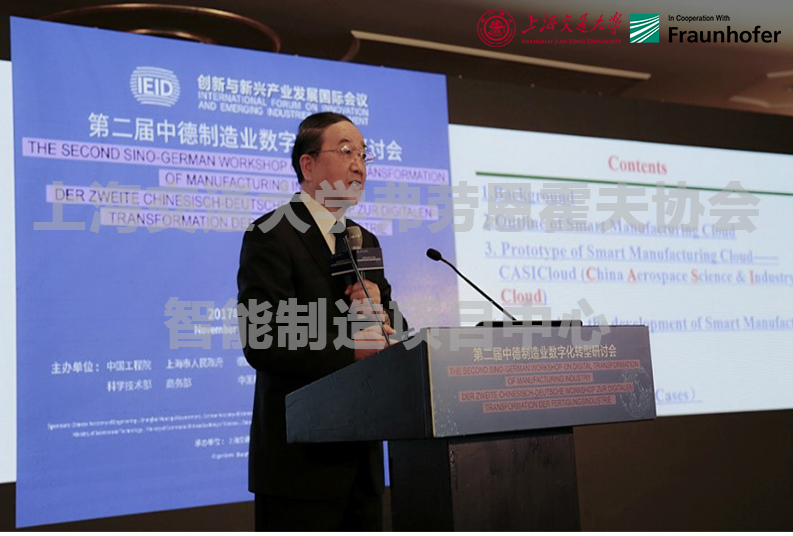
Prof. Li Bohu from Beijing University of Aeronautics and
Astronautics introduced "Smart Manufacturing Cloud", which is a smart
manufacturing system in the era of Internet +, artificial intelligence + and
big data +. In addition, Prof. Li also proposed the development of smart
manufacturing cloud, that is, to achieve the coordinated development of
"technology, application, industry", through the Internet, artificial
intelligence, and big data technologies, to build a highly efficient
management, high-speed operation, highly intelligence manufacturing system.
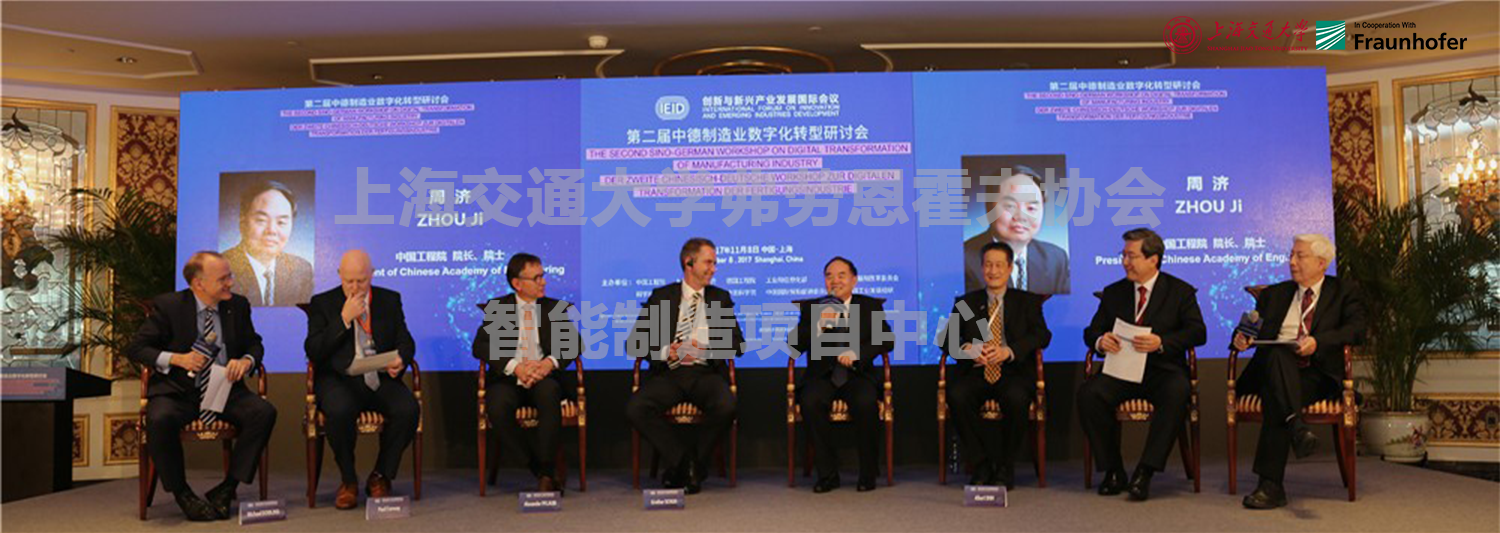
In the discussion session, the presenters had a lively
discussion on the new technologies, new views and new directions of digital
transformation and smart manufacturing development in the manufacturing
industry. With high level and broad vision, the experts made open communication
on the development direction and policies of emerging industries and digital
technology innovation and looked forward to the broad prospect of the
development of smart manufacturing.
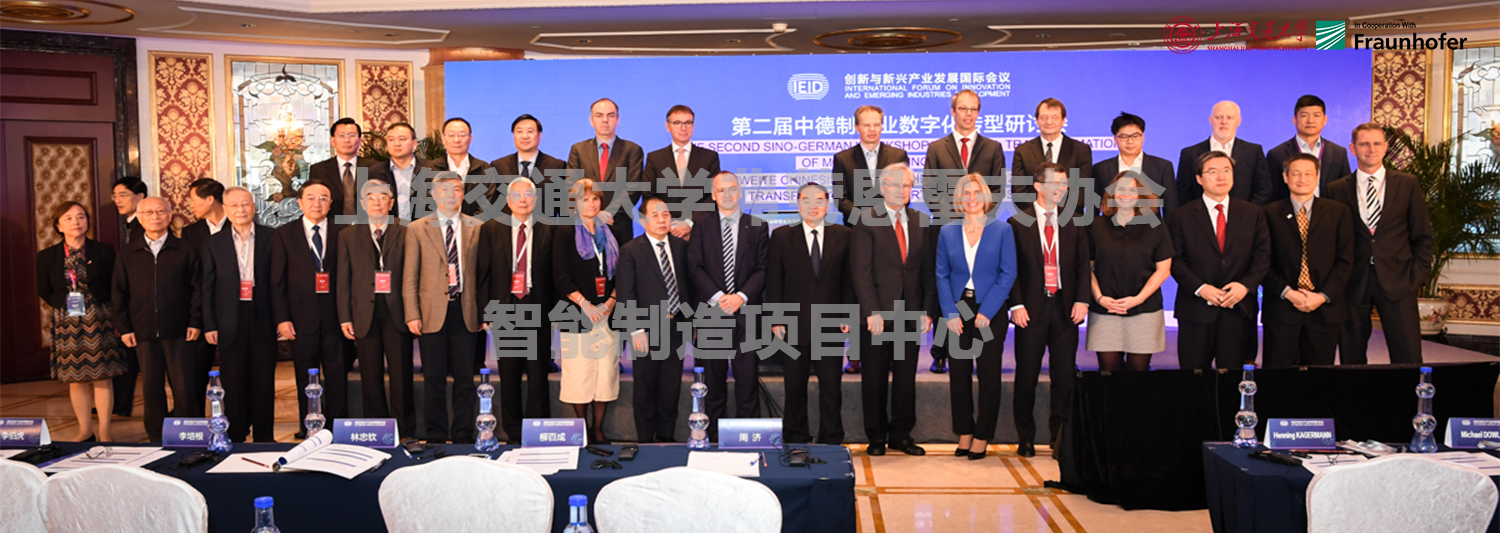
The first Sino-German Forum on
Digital Manufacturing Industries was held in Munich, Germany in November 2016,
which played a role of mutual communication, mutual enlightenment, and common
development in the field of smart manufacturing between the two countries. This
"Sino-German Forum on Digital Manufacturing Industries " is the
second gathering of Sino-German experts in the field of manufacturing, creating
a top academic exchange platform for digital transformation and development of
manufacturing, gathering world-renowned scholars, entrepreneurs and insightful
people, dedicated to providing a source of wisdom for the transformation and
sustainable development of Chinese manufacturing industry, guiding and
promoting global technological innovation and the development of new
industries.
- Development Planning Department of National Development and Reform Commission Conducted Investigations to Fraunhofer Project Center for Smart Manufacturing at Shanghai Jiao Tong University
- default
- Project Center Attending the Annual Conference of CIRP
- Hangzhou Iron & Steel Group Visiting the Fraunhofer Project Center for Smart Manufacturing at Shanghai Jiao Tong University
- Project Center Attending the Annual Conference of CIRP
- Project Center Attending the Annual Conference of CIRP


 Email: wanghao@sjtu.edu.cn
Email: wanghao@sjtu.edu.cn